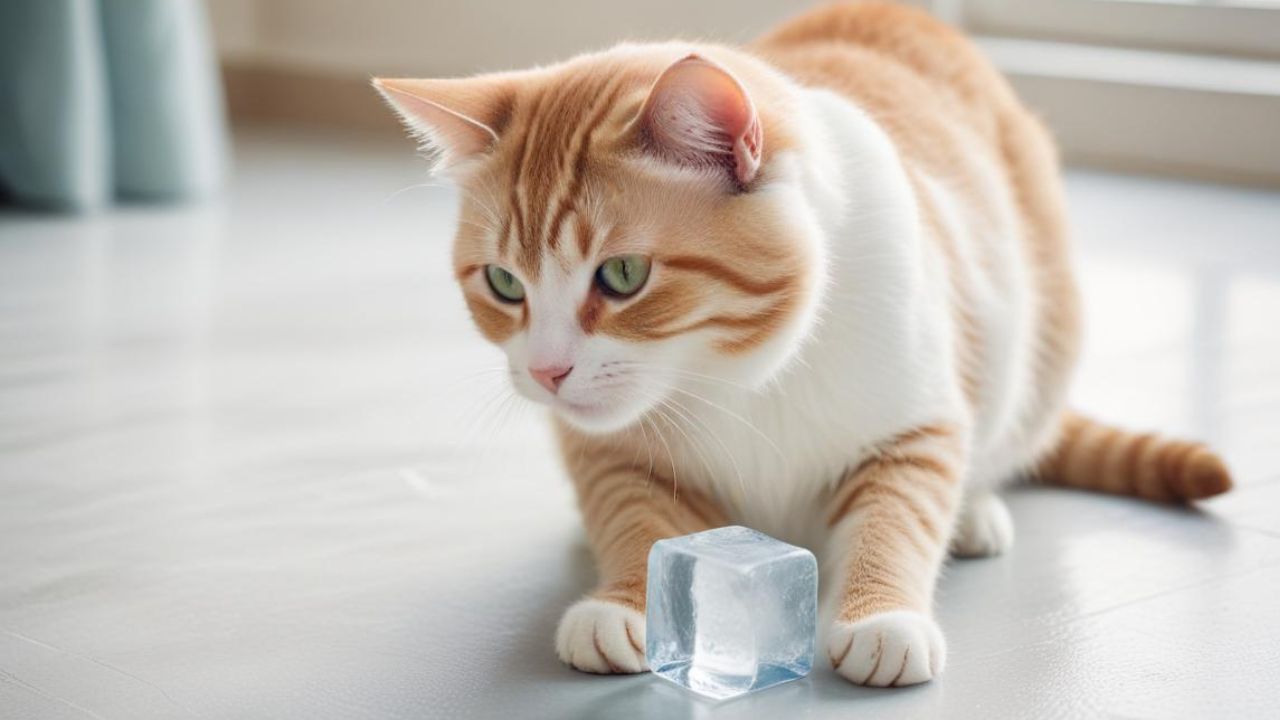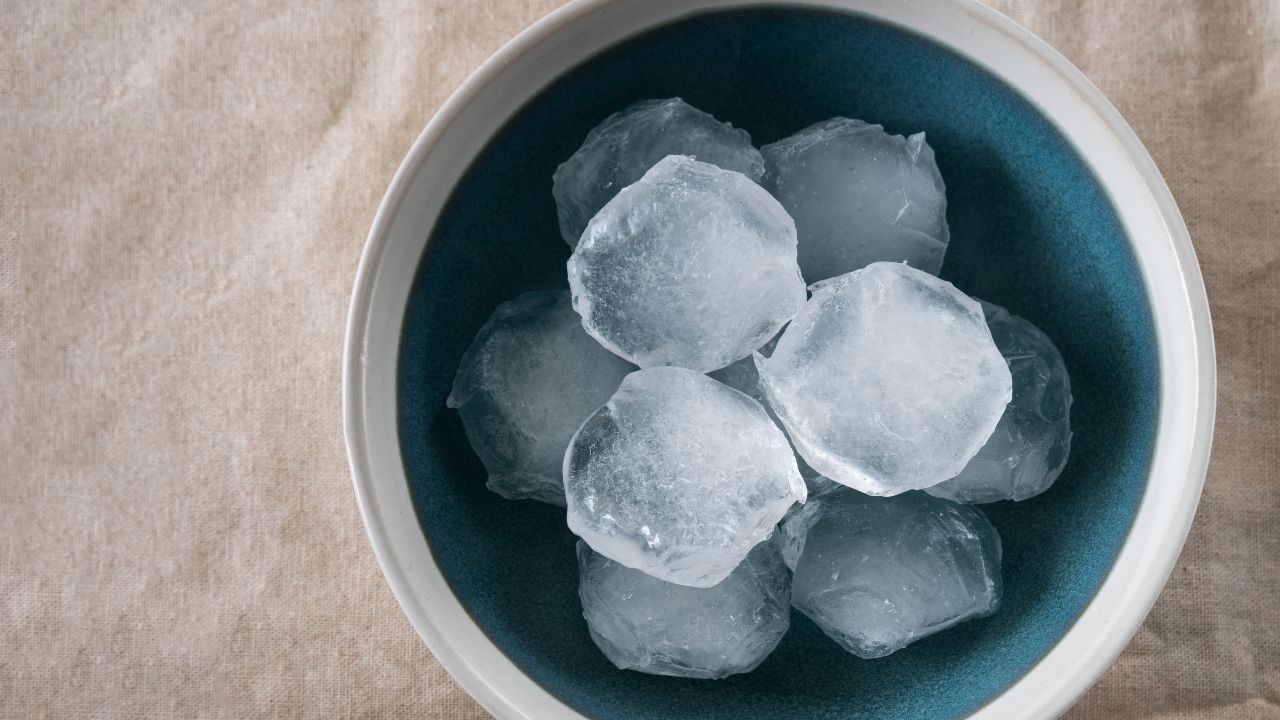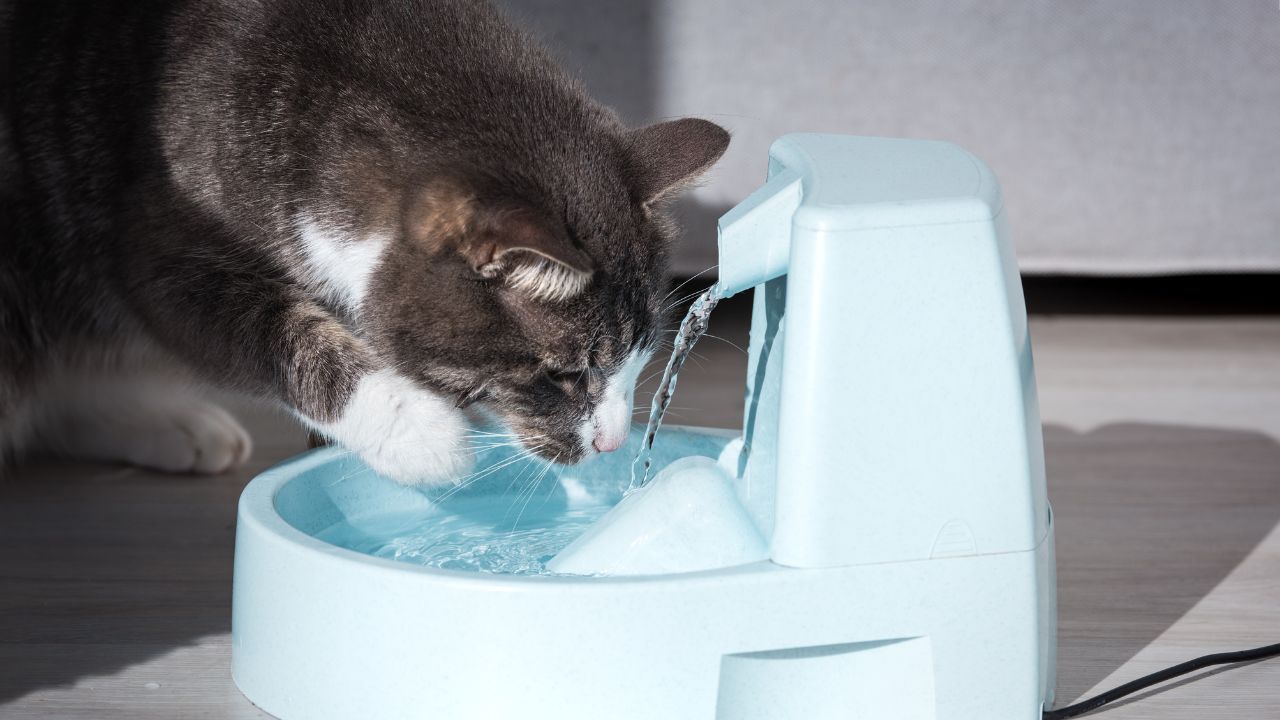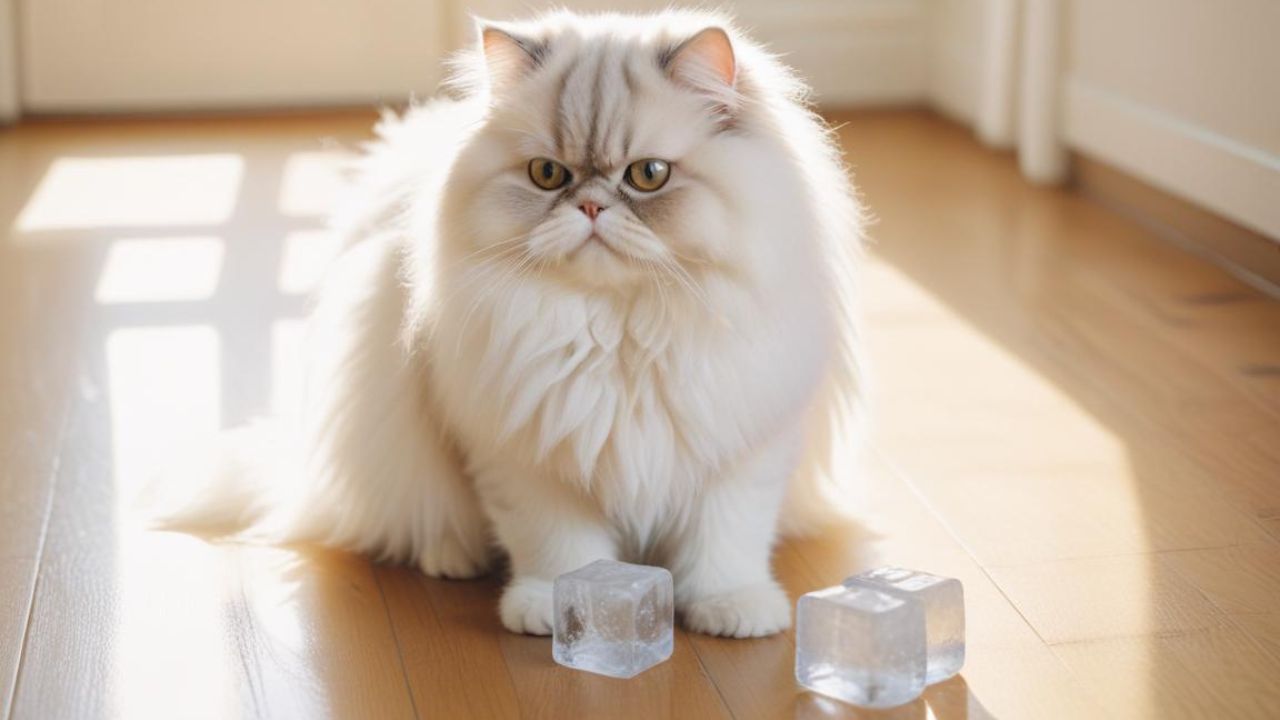Cats are naturally curious, and if they see an ice cube on the floor, they might bat it around like a toy or even lick it. But is ice actually safe for them? Can it cause any health issues? And how can it be used in a way that benefits your cat?
This guide covers everything you need to know about giving ice to cats—its benefits, risks, and the best ways to introduce it safely.
Can Cats Eat Ice?🧊🐱
Yes! Ice made from plain, clean water is generally safe for cats. Many enjoy licking or playing with ice, especially during hot weather. It can help them cool down and stay hydrated. However, there are a few important precautions to keep in mind.
Why Do Cats Like Ice Cubes? 🐾
Cats can be fascinated by ice for several reasons. Their sensitive paws and tongues make the sudden cold sensation feel interesting or refreshing. The way ice cubes slide unpredictably across smooth floors can trigger their natural hunting instincts, turning a simple ice cube into an exciting game. Cats are naturally curious creatures, and ice provides a new texture and sensation for them to explore. Some even enjoy the cool taste of ice, encouraging them to drink more water and stay hydrated.
Does your cat enjoy pawing at ice cubes? They might belong to one of the cat breeds that like water! Find out which breeds are naturally drawn to water and why.
Benefits of Ice for Cats ❄️

Adding ice to your cat’s routine can have several advantages:
- ✅ Encourages hydration – Some cats are picky drinkers and don’t consume enough water. Ice cubes in their bowl can make drinking more appealing.
- ✅ Provides mental stimulation – Ice cubes can be an interactive toy, engaging a cat’s natural instincts to chase and pounce.
- ✅ Helps cool them down – On hot days, licking ice can help regulate body temperature and prevent overheating.
- ✅ A fun, free toy – Ice cubes can be a great source of entertainment, especially for indoor cats that need extra stimulation.
Potential Risks of Ice 🚨
While ice is generally safe, there are a few things to watch out for:
- ⚠️ Choking hazard – Some cats might try to swallow a whole ice cube, which could be dangerous. Crushed ice or small pieces are safer.
- ⚠️ Tooth sensitivity & damage – Biting into a hard ice cube can be painful and might even cause dental issues, especially for senior cats or those with existing dental problems.
- ⚠️ Gastrointestinal sensitivity – Some cats have sensitive stomachs and may experience mild discomfort if they consume too much extremely cold water or ice.
- ⚠️ Slippery surfaces – Melting ice can make floors slippery, increasing the risk of an accidental slip for you and your cat.
- ⚠️ Cold shock – If your cat is not used to very cold temperatures, sudden exposure to ice-cold water might cause temporary discomfort.
How to Safely Give Your Cat Ice 🧊
If you want to introduce ice to your cat, here are the safest ways to do it:
Add ice cubes to the water bowl – This keeps the water fresh and cool, making it more appealing.

Use crushed Ice – Crushed ice is gentler on a cat’s teeth and eliminates the risk of choking.
Monitor ice playtime – If your cat loves playing with ice, supervise them to prevent accidents or overconsumption.
Introduce gradually – Some cats may be hesitant to try ice at first. Let them explore it at their own pace.
Avoid flavored or artificially enhanced ice – Never give ice that contains added sugars, artificial sweeteners, or other ingredients that could be toxic to cats.
Use a rubber mat – If your cat enjoys playing with ice on the floor, placing a rubber mat underneath can help prevent slipping and mess.
Check out our kittens for sale, raised by trusted breeders and ready for loving families. ❤️🐱
Can Ice Help Cats in Hot Weather? ☀️
Yes! Cats can struggle with heat, especially if they have thick fur or live in a warm climate. Ice can be a simple and effective way to help them cool down.
Here are a few cooling ideas using ice:
🧊 Frozen water bowl – Freeze half of your cat’s water bowl overnight and fill it with fresh water in the morning. This keeps it cool throughout the day.
🧊 DIY frozen cat toys – Freeze a small toy in an ice cube and let your cat try to “free” it. Just be sure the toy is safe and non-toxic.
🧊 Cool sleeping spots – Wrap an ice pack in a towel and place it in your cat’s favorite sleeping area for a refreshing cool-down spot.
Alternatives to Traditional Ice Cubes ❄️
If you’re concerned about the potential risks of ice cubes but still want to provide your cat with a refreshing treat, consider these alternatives:
🧊 Ice lick – Freeze a small amount of water in a shallow dish or ice cube tray to create an ice lick. Your cat can lick the slowly melting ice without the risk of biting down on a hard surface.
🧊 Cat-Safe frozen treats – Some pet stores offer treats specifically for cats. These treats are usually softer and less likely to cause dental issues.
🧊 Chilled cat food – If your cat enjoys wet food, refrigerate it briefly before serving. The cool temperature can be refreshing without the risks associated with ice.

🧊 Cat water fountain – Invest in a cat water fountain to encourage your cat to drink more water. Many cats prefer flowing water, which can help keep them hydrated.
Should Kittens Have Ice? 🐱
Kittens are naturally more sensitive to temperature changes, and their teeth are still developing. While it’s not dangerous for them to lick an ice cube, avoid giving them large or hard pieces that could hurt their teeth or be difficult to chew. Crushed ice or small ice shavings are a safer option.
The Verdict: Is Ice Safe for Cats? ✅
Yes! Ice is generally safe for cats and can be a fun, refreshing way to keep them cool and hydrated. To ensure their safety, always use plain ice made from clean water. Crushed ice or small cubes are the best options to prevent choking or dental issues. If your cat enjoys playing with ice, keep an eye on them to avoid slips or accidents. Also, be sure to steer clear of flavored or artificially sweetened ice, as these additives can be harmful.
By taking these simple precautions, you can let your cat safely enjoy the cooling benefits of ice while staying entertained.
Watching a cat chase an ice cube is just one of the many delightful things about having one! Check out more reasons to get a cat and see why they make life better. 🏡🐱
Does your cat love ice? Let us know in the comments! 🐾✨

FAQs
Can ice help with a cat’s teething pain?
Yes, for kittens, a small amount of crushed ice or a cold, damp washcloth can soothe sore gums during teething. However, always supervise to prevent choking.
Do some cat breeds enjoy ice more than others?
Breeds with thick fur, like Maine Coons or Persians, may appreciate ice more in warm weather, but individual preferences vary from cat to cat.
Can ice be used to help an overheated cat?
Yes, but never apply ice directly to their skin. Instead, wrap an ice pack in a towel or use a cool, damp cloth to gently cool them down.
Why does my cat paw at ice instead of eating it?
Many cats see ice as a toy rather than food. The texture, movement, and temperature make it more fun to bat around than to consume.
Can I make flavored ice cubes for my cat?
Yes! Freezing cat-safe liquids like diluted tuna water or low-sodium chicken broth can make a fun and tasty summer treat. Avoid anything with added salt, sugar, or artificial ingredients.






0 Comments